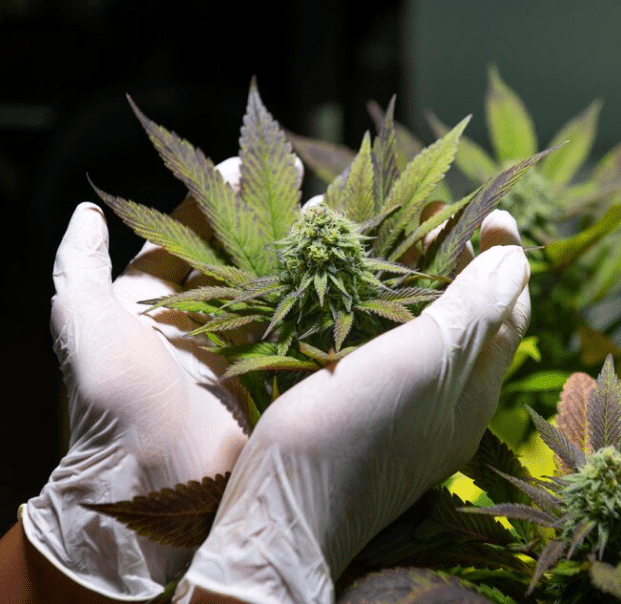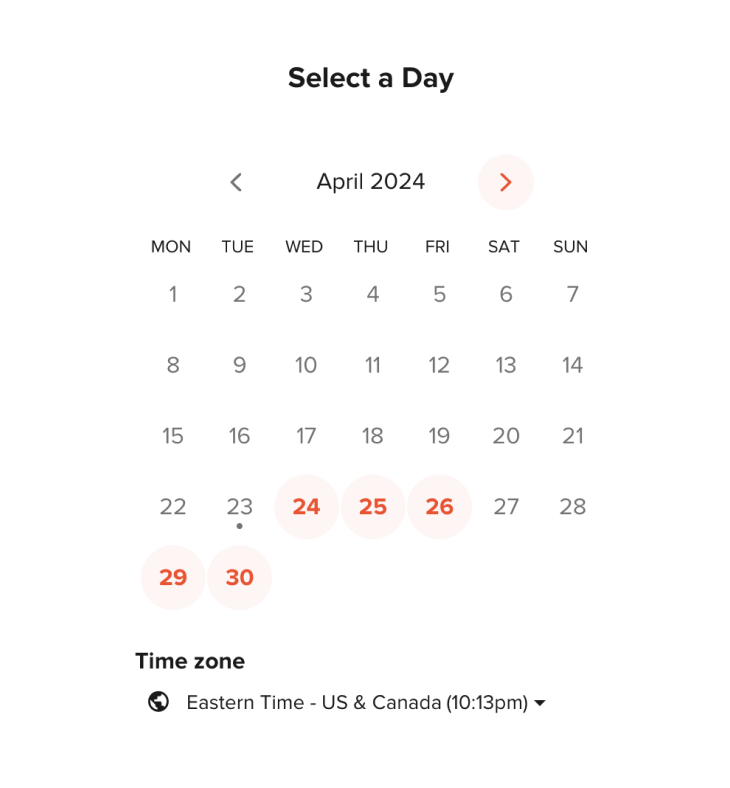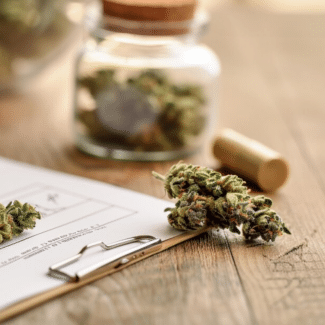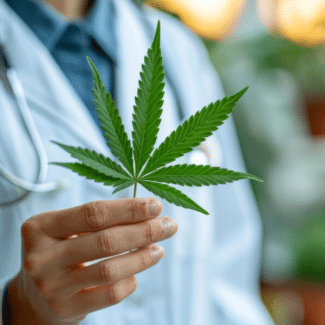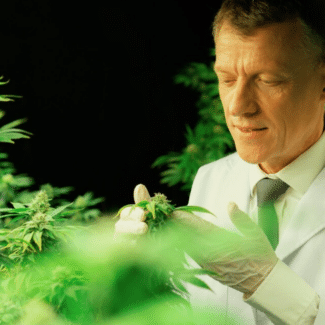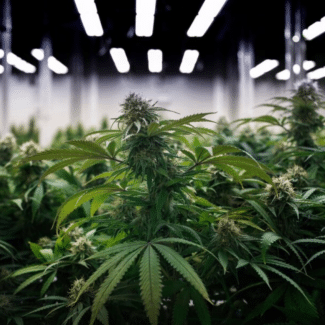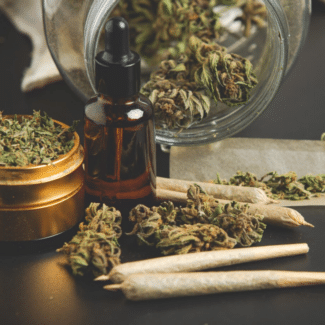Retail sales in Virginia are still waiting to commence, but the legal cannabis market still shows a lot of potential and promising opportunities.
Virginia stood fourth among states with the highest percentage of illicit marijuana sales revenue in 2020. While the numbers push the local government towards legalization of retail sales, it also puts the legal marijuana businesses under more strict laws and regulations.
Looking to succeed in the Virginia cannabis market? This guide will assist you in understanding the state’s intricate regulations and compliance laws. It is a comprehensive resource to help you prepare for the initial stages of your cannabis business.
Regulatory Landscape of Virginia Cannabis Licenses
Virginia’s cannabis regulatory landscape is complex and evolving. While the state has legalized both medical and adult-use (recreational) cannabis, only medical marijuana is available for purchase at licensed dispensaries.
In July 2020, cannabis was decriminalized across the state while, in 2021, adult-use cannabis was legalized. This made Virginia the first Southern state to allow personal use and cultivation of cannabis for adults. However, retail sales remain illegal as the state faces challenges in implementing this aspect of the law.
Here are some other important highlights of the cannabis regulatory landscape in Virginia:
- Last March 2024, Gov. Glenn Youngkin vetoed legislation that would have allowed recreational retail sales of marijuana in the state.
- Virginia’s medical cannabis program was projected to earn approximately $50 million by 2024
- In July 2021, the Virginia General Assembly legalized possessing up to one ounce of marijuana for adults aged 21 or older.
- The state also established the Virginia Cannabis Control Authority (CCA) as it legalized cannabis for recreational use.
- Virginians are allowed to grow up to four marijuana plants per household.
How to Obtain a Cannabis License in Virginia?
While the issue of legalizing cannabis retail sales in Virginia is still uncertain due to the vetoed legislation, it’s important to conduct thorough research and be prepared for when business licenses start to be issued and retail sales begin.
Here are some general guidelines on applying for a business license that can serve as your guide in the future.
Research and Prepare
Start with detailed research. Good research starts from within, so look at what you want to do, your goals, and how a cannabis business in Virginia helps you achieve them.
Let’s understand the four cannabis licenses that may become available in Virginia in the future:
- Cannabis Cultivation License: It’s suitable for those who want to grow and sell marijuana in Virginia. Cultivators may only sell cannabis, not products manufactured from it.
- Cannabis Product Manufacturing License: This license allows individuals or companies to process and manufacture cannabis products.
- Cannabis Wholesale License: This license allows the licensee to sell hemp seeds, immature hemp plants, retail cannabis, and retail items containing cannabis.
- Cannabis Retail License: It permits a business or establishment to sell retail marijuana and related products directly to consumers legally.
Another area that you should look into is compliance rules. This includes exploring local restrictions in your jurisdiction, such as advertising laws, zoning laws, packaging laws, and much more.
Several counties/jurisdictions may have local ordinances that must be researched properly. For example, in Newton, New Jersey, a cannabis business should be at least 500 feet away from a school or daycare facility as per Ordinance No 2021-12.
Note: As of January 1, 2024, all statutory and regulatory oversight of the medical cannabis program has transitioned from the Board of Pharmacy to the Virginia Cannabis Control Authority (CCA). The complete list of all licensed cannabis dispensaries in Virginia can be found on the CCA website.
By the end of an effective research and preparation period, you’ll have decided the business you want to establish, its potential and market size, and its local laws.
Safeguard Your Investment
Develop a Solid Business Plan
Knowing what interests you is the most crucial step of the licensing process. However, once you’ve decided, ensure developing a solid business plan that shows promise to the Cannabis Control Authority.
Below are some of the things that your cannabis business plan should include:
- Executive Summary: Keep an overview of your cannabis business, including its mission, vision, and goals, in your mind.
- Company Description: Think about your company’s legal structure, where you want to build a business unit, and how you’ll manage the team.
- Market Analysis: Conduct thorough market research to understand the industry, trends, target market, and competition.
- Find Customers: Identify your target customers, what they want from you, and how you can win their trust.
- Products and Services: Consider the cannabis products you plan to offer, their best selling points, quality, and competitive advantages.
- Marketing and Sales Strategy: Develop a comprehensive marketing plan, including advertising, promotions, and customer retention strategies.
- Risk Analysis: Identify potential risks and challenges your cannabis business may face and develop strategies to cope with the issues.
Expert Tip: The cannabis industry is full of risks. Look for a credible insurance provider while developing your business plan to position you as a well-prepared entrepreneur in front of CCA, financial institutions/solutions, and future customers.
Assemble the Necessary Documentation
Next, you want to prepare for documentation. Remember that submitting an incomplete application will either result in delay or allow CCA to reject your application.
So, always adhere to the documentation requirements for your specific cannabis license. Documents required by licensing authorities generally are:
- ID and residency proof of the state (Virginia)
- Financial resources for your business
- Security plans like insurance in case of theft or loss
- List of all owners or shareholders
- Property lease agreement
- Approval from the municipality’s city planning department
- Your information regarding experience in this domain
- Labor peace agreement
- Completed application
Submit the Application
Once you’ve filled out the application, be sure to double-check it. Proofread the application to see that it demonstrates compliance and responsibility. If you’re new, you may also consider a professional attorney to help you with the final review.
You must also pay the corresponding application fee required for processing your application. For example, in Ohio, the application fee for a 10(B) dispensary license is $5,000 while the Certificate of Operation fee is $70,000.
Application Review and Compliance Inspection
Once you submit the application and pay the required fee, your application will be processed and reviewed.
As far as compliance inspections are concerned, you must attest to the documents provided to demonstrate accuracy. Note that the CCA will reject the application and may take strict actions if inaccurate or false information is found at any step of the process.
You will need to complete a background check by local law enforcement. Fingerprints may also be required by the licensing authorities to examine the applicant’s criminal record closely.
Note: If you were convicted for marijuana-related issues, you must check out the Social Equity Applications.
From submitting the application to obtaining a cannabis license, it is crucial to maintain accurate records throughout the entire process.
Pharmaceutical Processors
Locations where medical cannabis dispensaries are allowed to operate are referred to as Health Service Areas in Virginia. Currently, there are five health service areas in Virginia, each with a licensed pharmaceutical processor. These pharmaceutical processors are the only authorized growers and dispensaries of medical cannabis in Virginia.
| Health Service Area | Pharmaceutical Processor |
| 1. Northwestern Virginia | Conditional approval awarded to AYR Virginia |
| 2. Northern Virginia | Beyond Hello (Jushi Holdings) |
| 3. Southwest Virginia | Rise (Green Thumb Industries) |
| 4. South Central Virginia | Cannabist and gLead (The Cannabist Company) |
| 5. Hampton Roads | Cannabist (Verano) |
Application Process
Pharmaceutical processors are the only ones who can apply for a cannabis license in the state.
Applications for a pharmaceutical processor permit are only accepted during an open “Notice of Open Application (NOA)” period. Check out the CCA website to know when applications are open.
During an open NOA period, the application process occurs in four stages:
- Submission of initial application
- Reviewing and scoring applications
- Awarding of conditional approval
- Granting of pharmaceutical processor permit.
Application Requirements
In the initial application, applicants are required to submit all requested materials, including a business plan and the following information and documentation:
- Name and address of the applicant and owners
- Documents establishing the applicant is authorized to conduct business in Virginia
- Information about previous involvement in the medical cannabis industry
- Whether the applicant has applied for a medical cannabis permit or registration in other states
- Text and graphic materials showing the exterior of the proposed pharmaceutical processor
- Blueprint of the proposed pharmaceutical processor
You must also pay a non-refundable application fee of $18,000 by the indicated deadline.
Check out the Notice of Application document from the recent HSA 1 applications held earlier this year to obtain detailed information about each stage of the application process, including the necessary components of your business plan.
Remaining Compliant with Virginia Regulations
Compliance is an ongoing process, and you must stay updated regarding any change in Virginia’s cannabis laws.
Some important compliance regulations in Virginia include:
- Posting a public notice on the proposed site. This notice should be posted on the front door of your desired location for 30 days. CCA will also determine the information contained in this notice during the inspection.
- You must also post an application notice at least once a week in a newspaper. This must be done for 14 days to ensure general circulation in the business’ operational area, town, or city.
- Inform the regulatory authorities regarding any changes in the organization’s structure.
- Informing the CCA in events of theft, robberies, or vandalism.
Final Thoughts
While the legal cannabis landscape in Virginia remains a work in progress, the opportunities for growth are significant. Prospective cannabis entrepreneurs must stay informed of the latest regulatory changes and carefully navigate the application process for a business license, even as retail sales for adult-use cannabis are yet to be legalized.
With careful planning and adherence to regulatory requirements, you can set your business up for long-term success in Virginia’s evolving cannabis industry. Staying proactive and adaptable will be key as the state continues to refine its cannabis regulations.
While this article explores all necessary aspects of cannabis license applications in Virginia, don’t forget to visit the CCA website for the most recent information.
